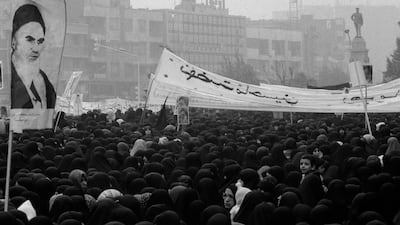The sale of hundreds of tanks and armoured vehicles to the Shah of Iran was a welcome fillip for the embattled British economy of the 1970s. Even better, the wealthy leader was prepared to pay up front.
The problem came with the 1979 Revolution. Britain halted the exports until order could be restored – but held on to the money.
In what the current defence secretary Ben Wallace once described as an episode “marred by double dealing and obfuscation”, the UK sold the tanks to the Iraqi leader Saddam Hussein who turned them on Iran during the 1980-88 war.
“I think it is widely accepted that the West’s support for Saddam Hussein was a catastrophic error,” Mr Wallace told MPs in 2014. “However, since that time, and despite Iran’s attempts through the rule of law to access the funds owed, the UK has held on to them.”
Five years later – and now defence secretary - Mr Wallace holds all but one of the 20 million shares in International Military Sales (IMS), the company that is responsible for the debt.
The repayment was delayed by a series of disputes over the sums owed from a patchwork of 60 contracts. Some were settled in 1990 but the largest contracts were subject to a ruling by a Dutch-based international commercial court in 2001 which set the amount of the debt to be repaid.
That ruling was challenged by IMS and a final ruling was not made for another eight years. But by 2008, attempts by the regime to develop nuclear weapons meant that international sanctions were placed on the Iranian military authority seeking the return of the money.
The dispute has rumbled on with the UK accepting it needs to pay the debt but claiming it is unable to do so because of the sanctions’ regime. A UK court is now in control of an account that holds nearly £500m with the accrued interest.
Attempts to resolve the dispute were not helped by the temporary detention of three Iranian officials at London's Heathrow Airport in 2013 despite having visas issued by the UK.
The case is next due before a UK court in March but lawyers involved in the case said there was obvious end in sight – a gloomy prospect for the relatives of dual nationals still being held in Iran.


